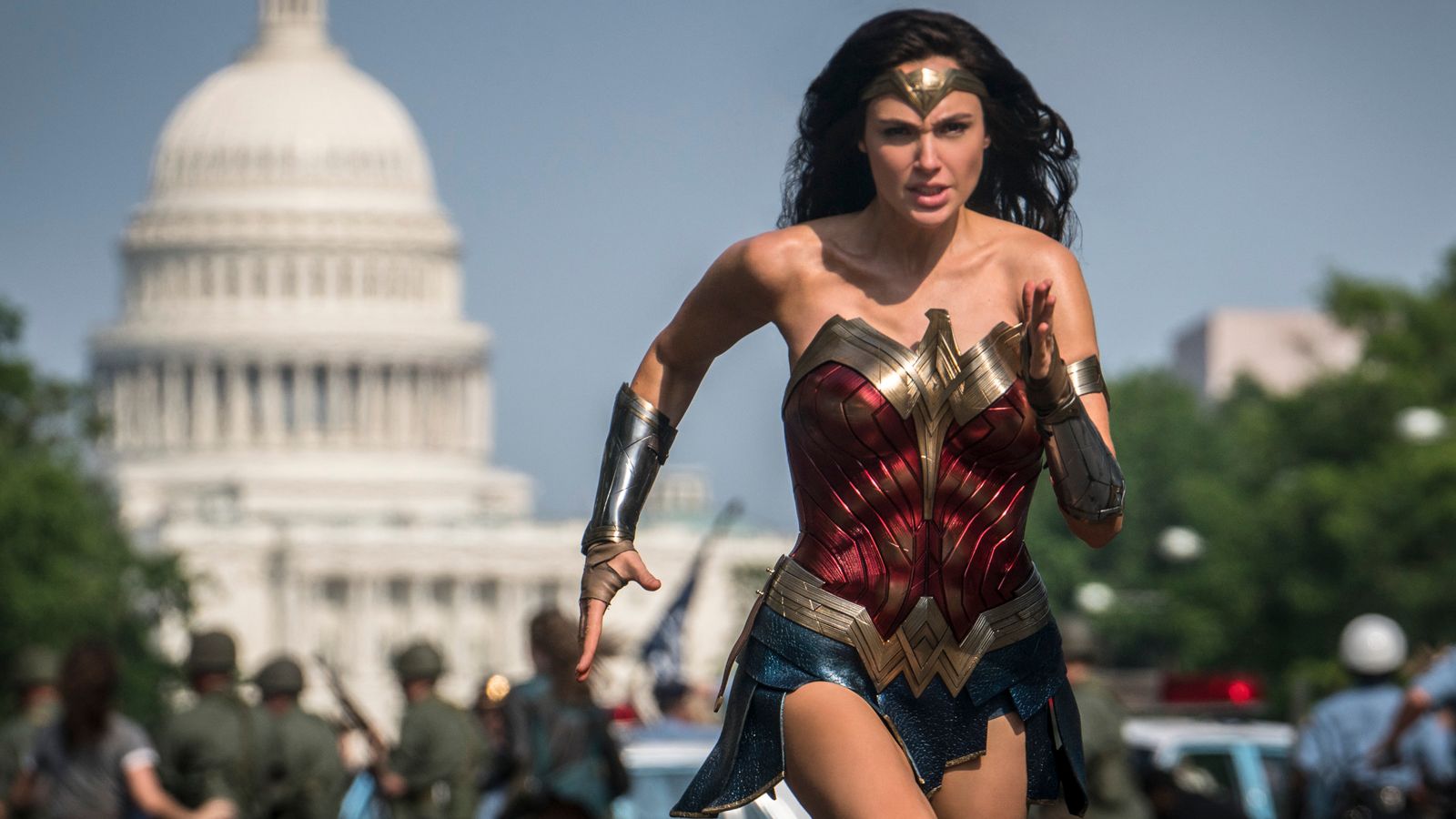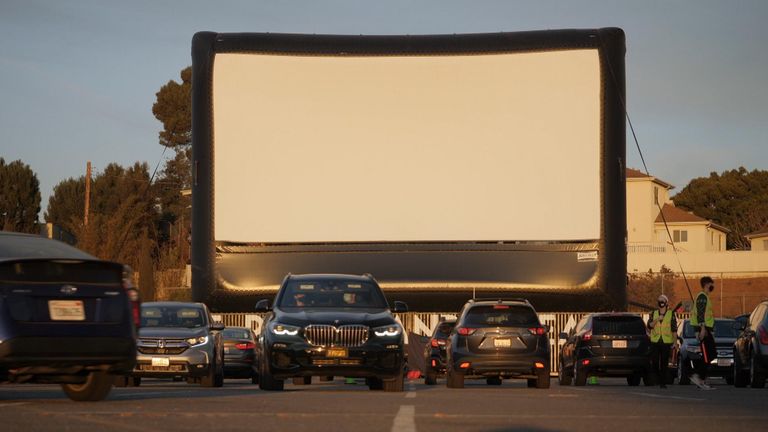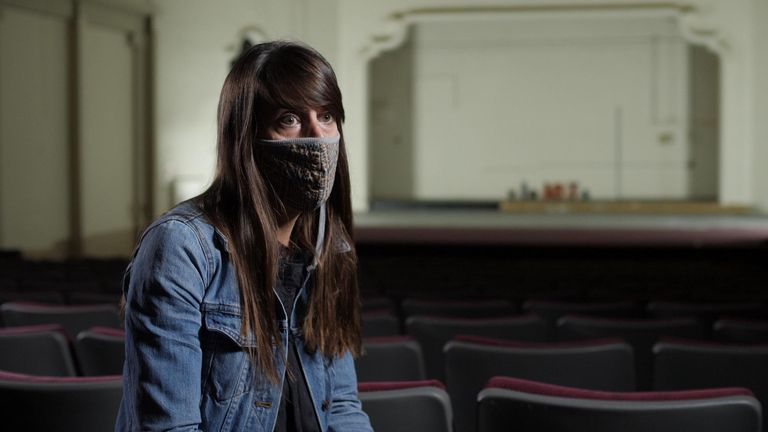Cinemas have often been cast as one of the victims in the real-life economic apocalypse movie playing out as a result of the COVID-19 pandemic.
With would-be movie-goers stuck at home and cinemas in darkness, the future of the big screen has looked increasingly uncertain in recent months.
And the pandemic has also accelerated the shift to more movies being released on streaming services as well as in cinemas.
The decision by Warner Brothers to make all of its 2021 movies available on its streaming service on the same day as they are released in the cinema has angered some of its biggest creative talents.
:: Subscribe to the Backstage podcast on Apple Podcasts, Google Podcasts, Spotify, Spreaker
Director Christopher Nolan, who worked with the studio for almost two decades, said: “Some of our industry’s biggest filmmakers and most important movie stars went to bed the night before thinking they were working for the greatest movie studio and woke up to find out they were working for the worst streaming service.”
But the increasing presence of the likes of Netflix and Amazon on the movie landscape in recent years had already made the shift to streaming appear an unstoppable force.
“There’s this notion that it’s an inevitable march towards streaming. Well, not to the people who make the movies,” said Phil Contrino, research manager at the body representing America’s cinema owners.
“The creative community want their movies on the big screen and they’re very reluctant to embrace a future that is only about streaming because they don’t make their movies to be seen first and foremost at home.”
But according to Sharon Waxman, who founded the Hollywood business news site The Wrap, that creative community has limited power.
“These are very big historic forces that are moving and making changes happen and no one studio, no one streamer, no one director, no one movie star is going to stop this inexorable movement in cultural and economic history.”
The movie business has survived plenty of technological advances in its century of existence and many believe the big screen will still thrive post-pandemic.
The Eagle Theatre in Los Angeles is currently a shadow of the venue that began showing movies in the 1920s. Its new owners, who once ran LA’s iconic Vidiots video store, are fundraising to return the Eagle to its former glory as a single-screen movie theatre.
Maggie Mackay, executive director of the Vidiots Foundation, says the public still wants the big screen experience.
“Streaming services are great. They are incredibly convenient, but you do lose something when you take people away from each other and you take movies off screens.”
Perhaps the most striking example of the enduring appeal of the big screen in Los Angeles has come courtesy of a British businessman. Gerry Cottle Jr, whose family found fame as circus operators in the UK, is seeing sell-out crowds at drive-in movies.
He said: “We all have kitchens in our houses, it doesn’t mean we don’t want to go to nice a restaurant. We may all have a TV in our houses, it doesn’t mean we aren’t going to want to watch the biggest and best movies on the big screen.”
But the stage has been set for 2021 to be a pivotal year in the battle between big screen and small.



